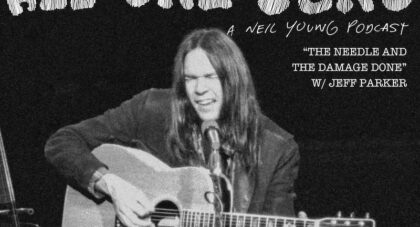Journeyman musician Fred Thomas joins Jesse Locke for a free ranging interview about his many projects, music writing, his recent trilogy of excellent, heartbreaking solo albums—All Are Saved, Changer, and Aftering, and his new moniker, Idle Ray. While just getting started, he’s already delivered some of the most moving songs of 2020 with more to come in the near future . . .
Only the good shit. Aquarium Drunkard is powered by its patrons. Keep the servers humming and help us continue doing it by pledging your support.
To continue reading, become a member or log in.


